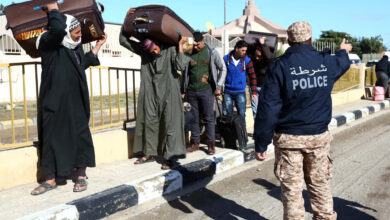The World Health Organization warned on Tuesday, February 5 that attacks on health facilities and workers are increasing both in frequency and scale across Libya.
Since the start of the 2018, the organization has documented 41 attacks on health facilities across the country, which continues to be plagued by instability and fighting. Six medical professionals and patients died and 25 others were wounded as a result of the attacks, WHO said.
The organization did not indicate who is responsible for the attacks, but called on all parties to the conflict to respect “the sanctity of health care.”
“The pattern of attacks indicates that health care is being deliberately targeted in the conflict area – this is a major violation of International Humanitarian Law and a tragic disregard of our common humanity,” Jaffar Hussein, WHO’s head of the mission to Libya, said in a statement.
Attacks against health facilities in Libya are taking a major toll on the country’s already ravaged health care infrastructure. WHO estimates that nearly three-quarters of all health facilities in Libya are closed or only partly functioning due to the country’s ongoing political crisis, resulting in a “severe” lack of personnel and resources.
“Such attacks are an outrage that put many more lives in danger in Libya and deprive the most vulnerable, including children and pregnant women, of their right to health services, just at the time when they need them most,” Hussein added.
Libya has been plunged into turmoil since a NATO-backed uprising ousted long-time leader Muammar Gaddafi from power in 2011. Gaddafi was brutally killed by a mob following his government’s military defeat, and the internationally recognized central government that was forged in the wake of the revolution has not been able to exert control across large swaths of Libya’s territory.
Despite a ceasefire agreement brokered by the United Nations in September, fighting between rival militias has continued to a limited extent across the country.
With the political crisis ongoing, the humanitarian situation remains dire. According to WHO, over one million Libyans were in need of potentially life-saving humanitarian assistance in 2018, the majority of whom are women and children.
@WHOLIBYA in the forefront in responding to the recent crisis emanating from the conflict in Qasr Ben Gashir & Azziziyah,#Trip Life saving med./supplies have been quickly deployed in the affected areas & efficient info.gathering on casualties’s regularly being recorded & reported https://t.co/Zd52VCsBme
— World Health Organization in Libya (@WHOLIBYA) January 17, 2019
WHO has also found a major gap in needed services and workers as Libya continues to face a lack of nurses, specialists, midwives, and doctors.
The U.N.’s refugee agency, UNHCR estimates that there are over 200,000 internally displaced people across the country. Additionally, Libya hosts over 40,000 refugees and asylum seekers from other countries across the region as over 90 percent of all refugees seeking to cross the Mediterranean Sea into Europe do so from Libya.
Between January 1 and January 26, the Libyan Coast Guard intercepted or rescued 469 people in the Mediterranean, Paula Barrachina Esteban, a spokesperson for UNHCR in Libya, told The Defense Post.
Al-Fuqaha attack highlights Islamic State’s growing confidence in Libya








